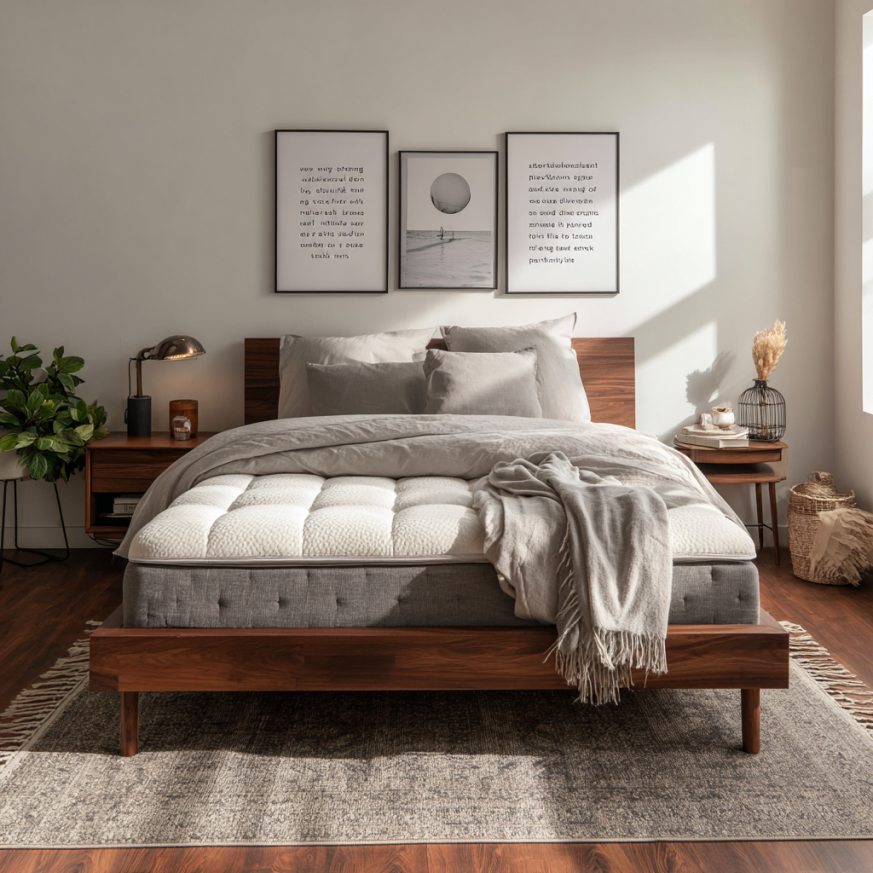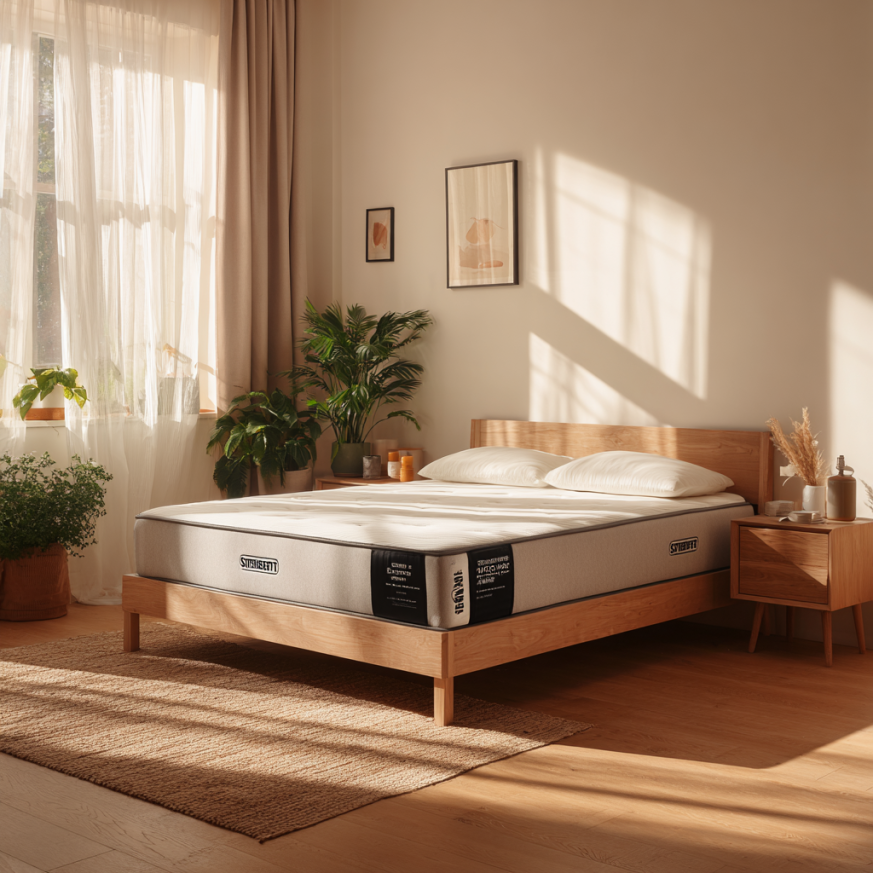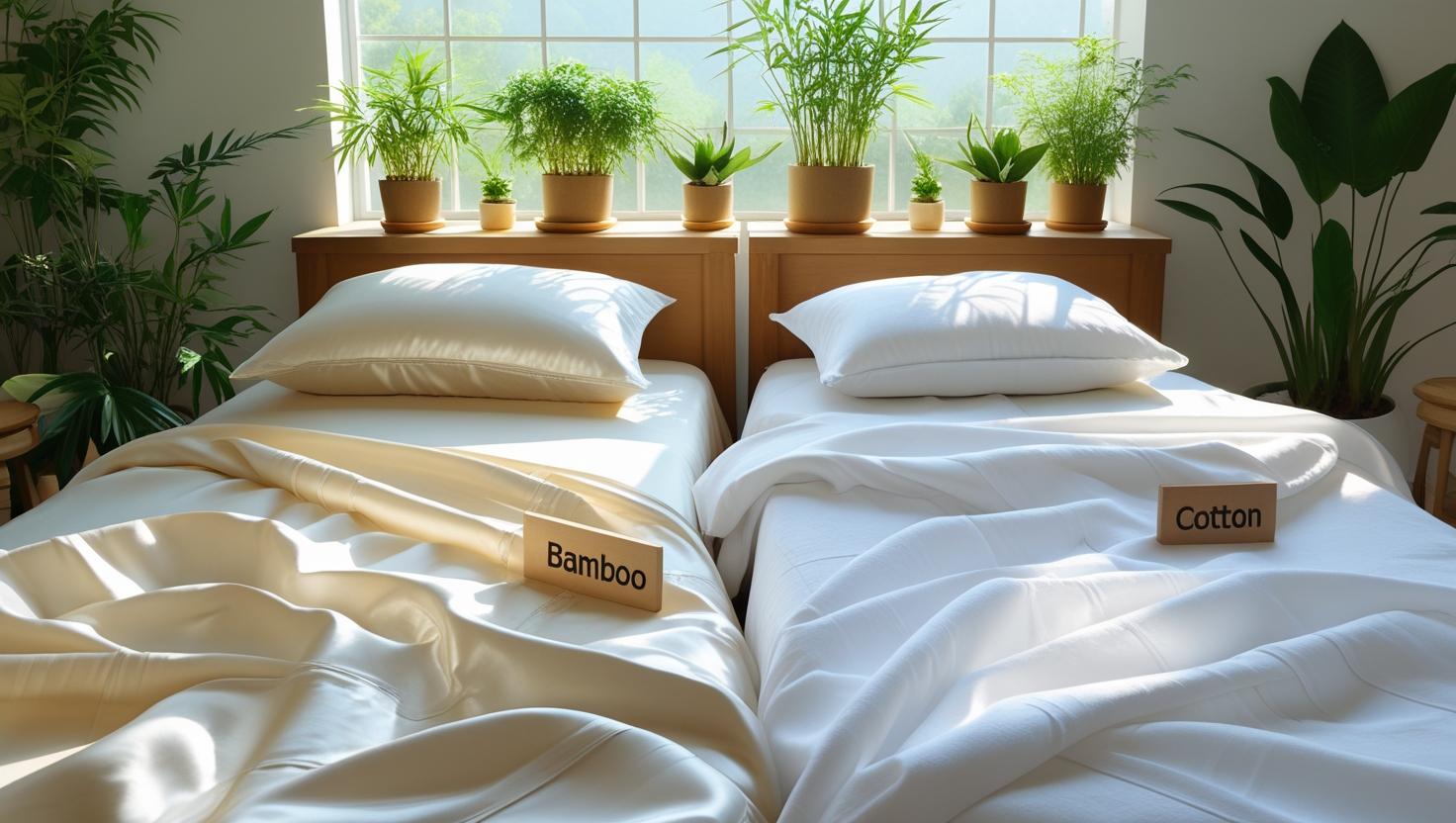Choosing the Right Mattress: Expert Guide for Comfort & Support
Choosing the right mattress is the fastest path to better sleep, healthier spinal alignment, and everyday energy. This warm, no-jargon guide explains mattress types, firmness, and real-world testing so you can confidently buy the bed that fits your body and budget. For expert buyer context and current top picks, see the
Sleep Foundation best mattress guide.

Key Takeaways: Choosing the Right Mattress
- Match firmness to position: side sleepers need more cushion, while back and stomach sleepers benefit from extra support.
- Prioritize alignment: a supportive core keeps your spine neutral and reduces morning aches.
- Test before you commit: leverage in-home trials and return policies to confirm comfort and support.
- Materials matter: memory foam, latex, hybrids, and innerspring each feel different and regulate temperature differently.
- Budget smart: choosing the right mattress is about fit and durability, not brand hype.
Start With Your Sleep Profile
Answer-first: Your ideal bed depends on how you sleep, your body weight, and what comfort feels like to you. Clarifying these basics narrows the field quickly.
Begin with your primary position. Side sleepers usually prefer deeper pressure relief around shoulders and hips. Back and stomach sleepers tend to do better with medium to firm surfaces that keep the hips from dipping. If you wake with soreness, look at zoned support or contouring comfort layers for targeted relief. Share a bed? Favor models that limit motion transfer so partners don’t wake each other.
To compare core constructions and feels in one place, review our primer on
types of mattresses.
Mattress Types: What Each Core Does Best
Answer-first: The core determines how a mattress feels, moves, and lasts. Foam hugs, coils lift, latex responds, and hybrids blend.
- Memory Foam: Deep contouring and standout pressure relief—popular for side sleepers and people with joint sensitivity. Some foams can feel warm, though many modern designs add breathable covers or channels to help with airflow.
- Innerspring: Buoyant, traditional feel with great airflow. These shine for ease of movement and cooler sleep, though pressure relief is usually lighter unless paired with plush toppers.
- Latex: Naturally breathable, resilient, and highly durable. Many shoppers choose latex for eco-minded materials that pair well with organic bedding, sustainable bedding, and eco-conscious sheets.
- Hybrid: Coils for lift plus foam or latex for cushioning. Hybrids aim for a stable, balanced “best of both” experience for couples and combination sleepers.
Unsure where you land? Our side-by-side breakdown can help you compare feel and performance in detail:
best bed types for back pain relief (great for support seekers).

Comfort vs. Support: Find the Sweet Spot
Answer-first: Comfort is pressure relief; support is spinal alignment. You need both for deep, restorative sleep.
Comfort comes from the upper layers that cushion your body and ease hotspots. Support comes from the core that holds your spine in neutral alignment. A quick guide: soft for lightweight and side sleepers, medium for most people, and firm for back and stomach sleepers who need extra hip support. If you’re still calibrating, many brands offer multiple firmnesses in the same model, letting you pick the feel that meets your needs.
For extra help dialing in the “ahh” factor of your whole setup, see our
comforter guide by season—upgrading bedding can fine-tune temperature and comfort.
How to Test a Mattress In-Store or At Home
Answer-first: Spend real time on the bed in your normal position and make alignment the deciding factor.
In a showroom, lie in your usual position for at least 10–15 minutes on each candidate. You’re looking for neutral alignment (no swayback or turtleneck), pressure relief at shoulders and hips, and stable edge support. At home, use the full trial window—many brands now offer generous trials—to confirm comfort and support across several nights. For a structured decision framework, bookmark the
Consumer Reports mattress buying guide.
Cooling, Couples, and Eco Choices
Answer-first: Hot sleepers need airflow; couples need motion control; eco-minded buyers can prioritize natural and certified materials.
If you sleep hot, look for breathable covers, phase-change materials, ventilated foams, open-coil support cores, or naturally cool latex. For couples, motion isolation from memory foam or a pocketed-coil hybrid keeps sleep undisturbed. If your goal is a greener bedroom, consider latex mattresses with organic cotton and wool, and pair your mattress with organic bedding and sustainable bedding made with third-party certifications. A helpful decision refresher is Parachute’s
mattress buying guide.

Care & Maintenance: Make Your Mattress Last
Answer-first: Protect, rotate, and clean on a schedule; small habits add years of comfortable life.
- Rotate every 3–6 months to even out wear (unless the mattress is truly zoned or one-sided with clear labels).
- Use a waterproof protector to shield against spills and dust mites—especially helpful for allergies.
- Vacuum the surface regularly and deep clean annually to keep it fresh.
- Avoid jumping or concentrated weight that can damage foams or coils.
For practical, step-by-step care, see Better Homes & Gardens on
how to clean a mattress.

FAQ
- How do I know if I’m choosing the right mattress?
- Your spine should feel neutral, pressure points should melt away, and you should wake without stiffness. If you’re on the fence, a home trial helps confirm your decision.
- Which mattress is best for back pain?
- Many back-pain sufferers thrive on a medium-firm feel that combines support with gentle contour. Start with a hybrid or memory-foam build and compare options in our guide to
the best bed types for back pain. - How long do mattresses last?
- Most quality models last 7–10 years, while high-end latex and well-built hybrids can go longer with consistent care and a protector.
- Can a mattress really improve sleep quality?
- Yes. The right mix of comfort and support can reduce tossing, align your spine, and promote deeper, more restorative sleep. If you’re switching materials or firmness, learn how to
break in a new mattress for a faster adjustment.
Final Thoughts
At the end of the day, choosing the right mattress is about pairing the feel you love with the support your body needs. Use in-home trials, trust your comfort cues, and lean on Cozy Bed Quarters resources for friendly, expert guidance built around real-world sleep. When you’re ready to compare options head-to-head, start with our overview of
mattress types and build from there.
Helpful Cozy Bed Quarters resources:
Types of Mattresses ·
Break In a New Mattress ·
Comforter Guide by Season ·
Feng Shui Principles for Bedroom Layout
Related Reading








